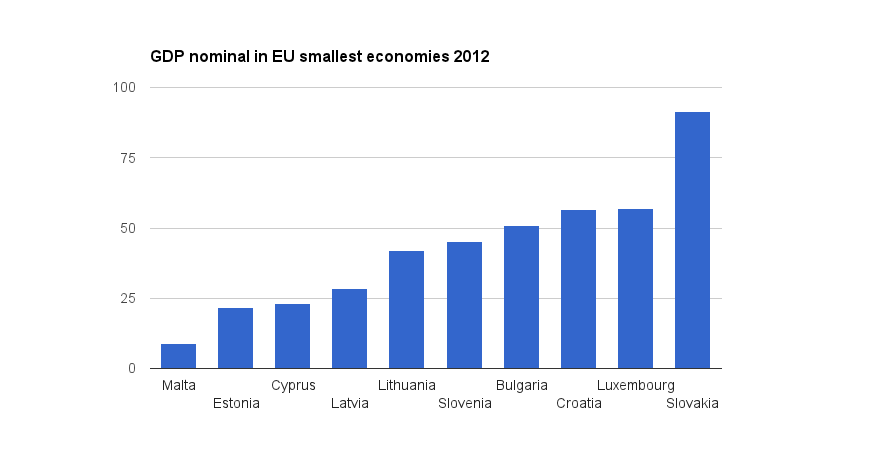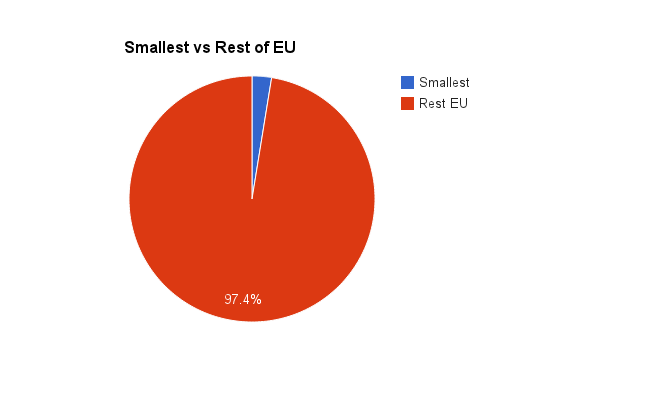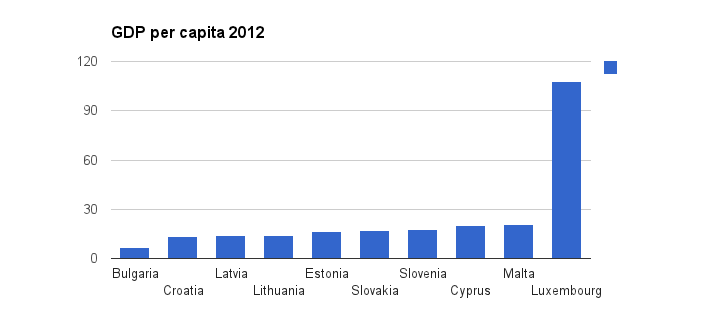The European Union, with 28 member states and a population reaching over 500 million, may sound like the world's largest economy when viewed as a whole. In 2012, the EU's GDP was $16.6 trillion.
But let's break things down and take a closer look at what makes up the European Union. In this article, I will talk about the smallest economies in the EU.
The Smallest economies of the European Union:
I decided to call an economy small if its Gross Domestic Product is less than $100 billion.
In 2012, there were 10 countries in the European Union with a GDP below $100 billion. These countries were Malta, Estonia, Cyprus, Latvia, Lithuania, Slovenia, Bulgaria, Croatia, Luxembourg, and Slovakia. The total population of these countries was 28 million.

In total, the 10 smallest economies generated $425 billion of GDP.
According to the chart above, we can expect to see Slovakia move off the list of smallest economies in the near future.
In 2012, Slovakia's GDP was $91.604 billion. I believe that Bulgaria will also be removed from this list in the coming years. In 2012, Bulgarian GDP was only $51 billion, with a population of 7.3 million, making it the poorest country in terms of GDP per capita in the European Union in 2012. In that year, the GDP per capita in Bulgaria was $6,980.

In 2012, these 10 smallest economies of the EU generated just about 2.6% of the total economy.
GDP per capita in EU's smallest economies
In average GDP per capita in those 10 countries was $15,00.19

The smallest GDP per capita was in Bulgaria, making just $6.985, while the highest was in Luxembourg - $107.560 per capita.
In conclusion, the European Union is made up of 28 member states with a total population of over 500 million people, and its GDP in 2012 was $16.6 trillion. However, it's important to break down the EU into its individual member states to get a better understanding of the economy. The 10 smallest economies of the EU, with a GDP less than $100 billion, generated about 2.6% of the total economy in 2012, with an average GDP per capita of $15,001.19. While some of these smaller economies are expected to grow in the future, it's important to acknowledge that there are still discrepancies in GDP per capita among EU member states, with Bulgaria being the poorest country in 2012. By understanding the smallest economies of the EU, we gain a better appreciation for the complexities and diversity of the region's economy.
